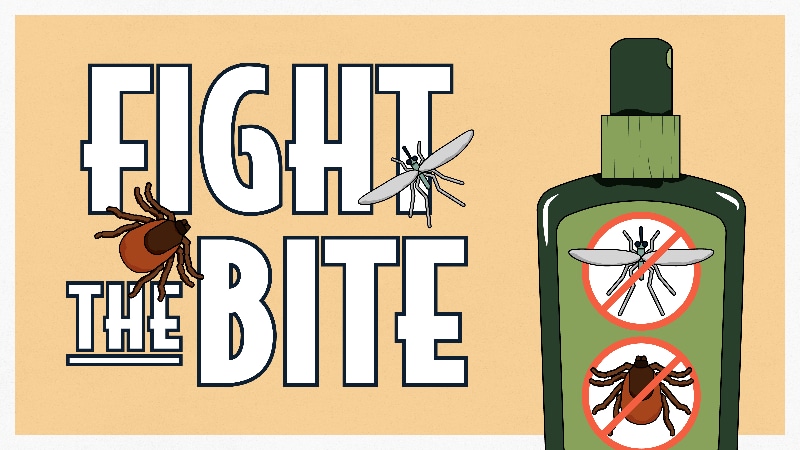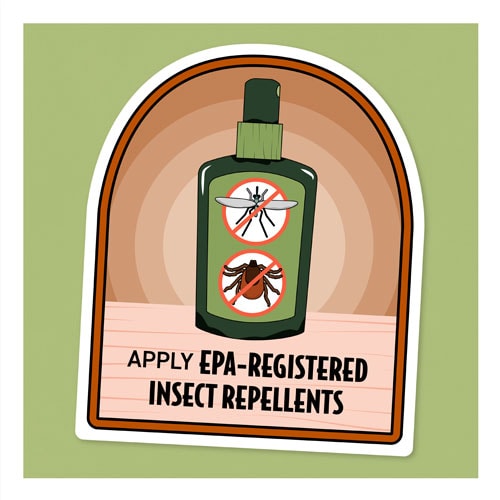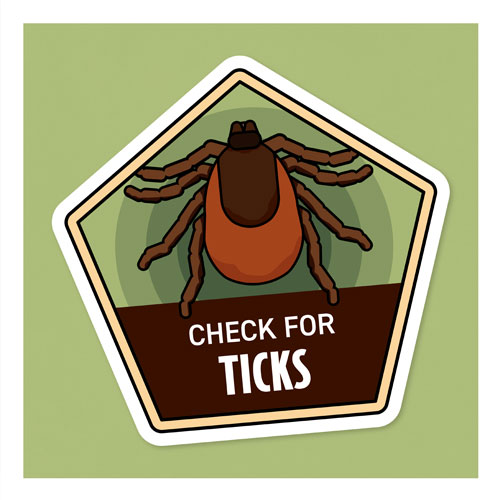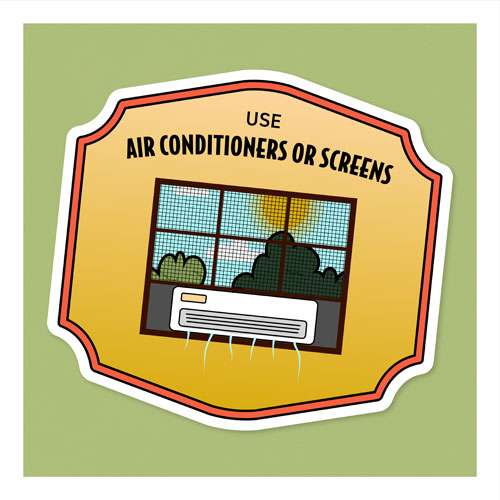Fight the Bite! Prevent Mosquito and Tick Bites

Ticks and mosquitoes can be more than just a nuisance. They can spread germs that make you sick. Fight the bite by taking steps to prevent tick- and mosquito-borne disease.
Vector-borne diseases are on the rise in the United States. Mosquito and tick bites can spread viruses, bacteria, and parasites that cause several different diseases. Some of the most common vector-borne diseases in the U.S. include:
Mosquito and tick bites can happen anywhere, even in your own backyard. Certain groups of people are at a higher risk for disease than others due to behaviors or geographic location that put them in contact with ticks and mosquitoes. Additionally, certain groups of people are more likely to develop severe disease, such as older adults and those who have weakened immune systems. Understanding your risk of vector-borne diseases can help you know when and where to expect ticks and mosquitoes.
Learn different steps you can take to fight the bite:
Before going outside:

- Apply EPA-registered insect repellent. Use Environmental Protection Agency (EPA)-registered insect repellents with one of the active ingredients listed below. When used as directed, EPA-registered insect repellents are proven safe and effective, even for people who are pregnant and breastfeeding.
- DEET
- Picaridin
- IR3535
- Oil of lemon eucalyptus (OLE)
- Para-menthane-diol (PMD)
- 2-undecanone
- Wear loose-fitting long clothing. Covering your skin with long-sleeved shirts and long pants can help stop ticks and mosquitoes from biting.
- Treat clothes and gear with products containing 0.5% permethrin. Permethrin is an ingredient that can be used to treat boots, clothing, and gear to kill and repel ticks and mosquitoes. It remains protective through several washings.
- Avoid brushy areas. Ticks prefer moist and humid environments, particularly in or near grassy, brushy, or wooded areas. You may come into contact with ticks during outdoor activities, around your home, or when walking through leaf litter or near shrubs. Avoid wooded and brushy areas with high grass and leaf litter and walk in the center of trails to prevent contact with ticks.
- Prevent ticks on dogs. Dogs are very susceptible to tick bites and tickborne diseases. Talk to your veterinarian about the best tick prevention products for your dog year-round.
After coming inside:

- Check for ticks. Ticks are tiny! Check your body, your kids, and your pets for ticks after spending time outdoors, even in your own backyard. Use a hand-held or full-length mirror to view all parts of your body and remove any tick you find. Ticks like to hide so be sure to check these parts of your body:
- Under the arms
- In and around the hair and ears
- Inside belly button
- Back of the knees
- Between the legs
- Around the waist
- Take a shower soon after being outdoors. Showering within two hours of coming indoors has been shown to reduce your risk of getting Lyme disease and may be effective in reducing the risk of other tickborne diseases. Showering may help wash off unattached ticks and it is a good opportunity to do a tick check.
- Tumble dry clothes. Ticks may hitch a ride into your home on clothing. Place clothes in a dryer on high heat for 10 minutes to kill ticks on dry clothing after you come indoors. If the clothes are damp, additional time may be needed. If the clothes require washing first, hot water is recommended. Cold and medium temperature water will not kill ticks.

Control mosquitoes in and around your home:
- Use air conditioners and screens to keep mosquitoes outside of your home.
- Empty standing water. Stop mosquitoes from laying eggs in or near water. Once a week, empty and scrub, turn over, cover, or throw out any items that hold water like tires, buckets, planters, toys, pools, birdbaths, flowerpot saucers, or trash containers
- Fight the Bite Resources
- About Mosquitoes
- About Ticks
- CDC images of common mosquitoes and ticks that bite people: